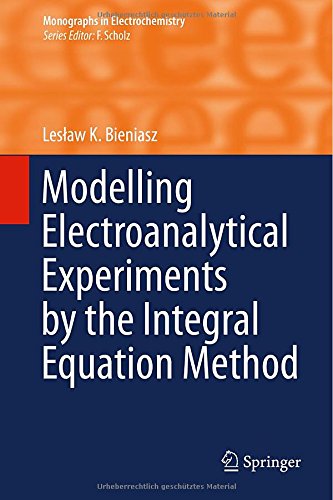

Most ebook files are in PDF format, so you can easily read them using various software such as Foxit Reader or directly on the Google Chrome browser.
Some ebook files are released by publishers in other formats such as .awz, .mobi, .epub, .fb2, etc. You may need to install specific software to read these formats on mobile/PC, such as Calibre.
Please read the tutorial at this link: https://ebookbell.com/faq
We offer FREE conversion to the popular formats you request; however, this may take some time. Therefore, right after payment, please email us, and we will try to provide the service as quickly as possible.
For some exceptional file formats or broken links (if any), please refrain from opening any disputes. Instead, email us first, and we will try to assist within a maximum of 6 hours.
EbookBell Team

4.0
56 reviewsThis comprehensive presentation of the integral equation method as applied to electro-analytical experiments is suitable for electrochemists, mathematicians and industrial chemists. The discussion focuses on how integral equations can be derived for various kinds of electroanalytical models. The book begins with models independent of spatial coordinates, goes on to address models in one dimensional space geometry and ends with models dependent on two spatial coordinates. Bieniasz considers both semi-infinite and finite spatial domains as well as ways to deal with diffusion, convection, homogeneous reactions, adsorbed reactants and ohmic drops. Bieniasz also discusses mathematical characteristics of the integral equations in the wider context of integral equations known in mathematics. Part of the book is devoted to the solution methodology for the integral equations. As analytical solutions are rarely possible, attention is paid mostly to numerical methods and relevant software. This book includes examples taken from the literature and a thorough literature overview with emphasis on crucial aspects of the integral equation methodology.